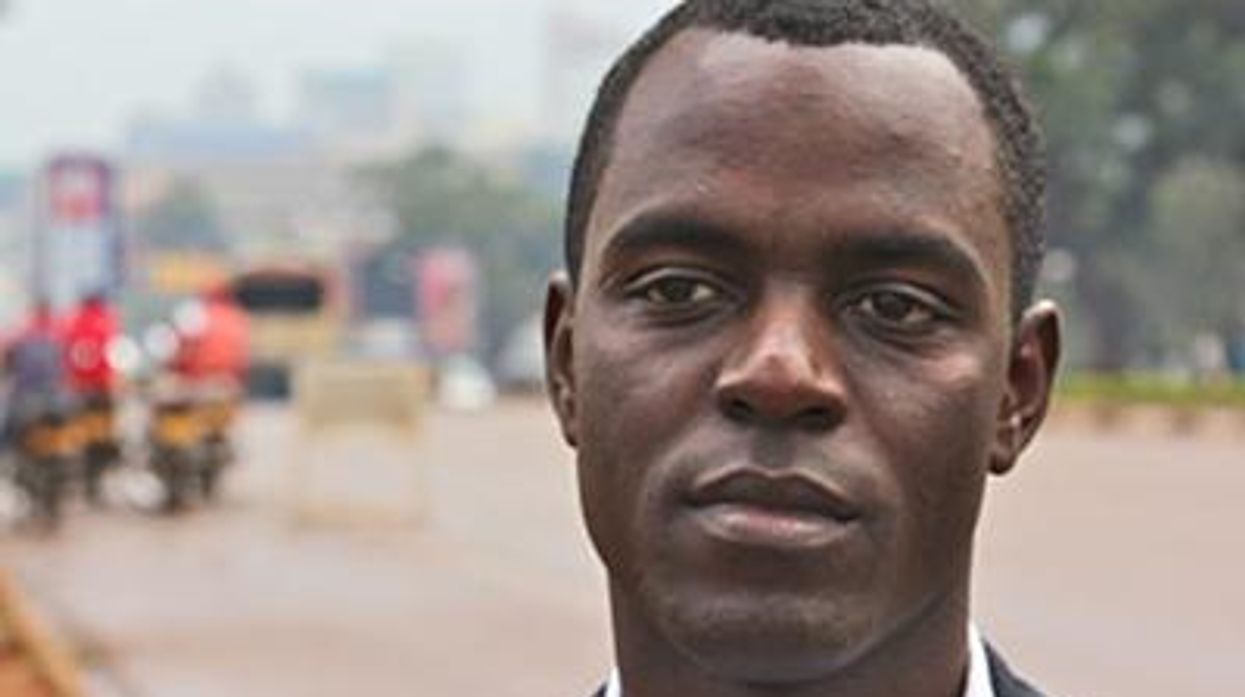In an interview for GLAAD's All Access video series, noted Ugandan LGBT activist Frank Mugisha called on American pop stars and celebrities to pick up the mantle of LGBT equality.
Mugisha pointed specifically to Jay Z, saying the recording artist could do more to help east Africa's severely oppressed LGBT community than any public figure from the fields of politics or activism ever could. That's because celebrities have the potential to impact individuals on a personal level.
"Homophobia is mostly not a collective issue," said Mugisha. "It's more of an individual issue. You find a parent beating or killing a child because they're coming out. ... But if we can get their own personal heroes, footballers, entertainment people, and of course, Jay Z and other celebrities to speak out, [saying] 'You know, I don't mind gay people; I have gay friends,' or 'I am gay,' that can change the person in Uganda who is in the rural areas."
Prolific human rights advocate and video journalist Claire Pires's interview also includes a rare acknowledgement by Mugisha that he receives threats to his life every day.
Mugisha is ever-vigilant and mindful about the power of words and thoughts in his quest to overcome homophobia and transphobia at home and abroad. Sometimes that means not talking about certain things in his home country, he told Pires.
"I don't talk about my threats because when we talk, when we are very empathetic about the challenges we go through; Ugandans think we are using that as a tool for sympathy," said Mugisha.
But there can be little doubt that the Robert F. Kennedy Human Rights Award recipient takes such threats seriously -- even though he's been facing them consistently since his friend and fellow LGBT advocate, David Kato, was murdered in 2011, following the front-page story in a local tabloid blasting "Uganda's 100 Top Homos," with a banner reading "Hang Them."
That tabloid expose, which ran in the now-defunct Rolling Stone (no relation to the American music magazine), arguably read like a hit list -- and included Mugisha and many of his friends and fellow activists in Kampala, the Ugandan capital. Although a court order prohibited tabloids from publishing photos and personal information of suspected LGBT Ugandans, several similar "exposes" have run in other tabloids in the past several years, including one that plagiarized an award-winning Advocate photo essay featuring first-person stories from Mugisha and his fellow activists.
"[David's] death was sort of like activating me to even work harder, because I wouldn't want to see what happened to him happen to anyone else," Mugisha told Pires in the interview, conducted in New York after the activist was bestowed the Joli Humanitarian Award by the Riverdale Country School.
Despite international outrage, in early 2014 Ugandan President Yoweri Museveni signed into law the Anti-Homosexuality Act, which prescribed lifelong prison sentences for LGBT people in some circumstances and lengthy jail terms for those who did not report a "known homosexual" to authorities. In August of last year, Kampala's constitutional court overturned the law on a procedural technicality.
After making it safely out of the courthouse amid antigay protesters and media on the day the law was struck down, Mugisha joyfully tweeted the "Breaking news, I am officially legal. The constitutional court in Uganda has declared anti-homosexuality law 2014 null and void."
But because the court did not address the merits of the antigay law, Ugandan lawmakers are still trying to introduce a similar bill that would, in effect, "jail the gays." President Museveni has all but promised to veto such a bill, presumably in order to avoid U.S. and European sanctions that came with the bill's previous incarnation.
But far-reaching ghosts of Uganda's Anti-Homosexuality Act persist, as a protest by Ugandan LGBT refugees in neighboring Kenya proved during a demonstration at the United Nations High Commissioner for Refugees camp at Kakuma on March 11. After Nairobi police attempted to disperse the demonstrators, more than 35 protesters instead camped outside the UNHCR offices until the list of demands they presented were addressed.
Watch Pires's full interview with Mugisha below:




































































Charlie Kirk DID say stoning gay people was the 'perfect law' — and these other heinous quotes